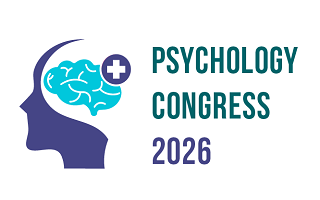3rd International Congress on
Psychology & Behavioral Sciences
March 26-27, 2026 | Osaka, Japan

Address: 1 Chome-9-15 Shinkitano, Yodogawa Ward, Osaka, 532-0025, Japan.
Psychology Congress 2026

Hong Kong Shue Yan University, Hong Kong
Abstract:
The high prevalence of online adult pornography (OPA) use and problematic online adult pornography use (POAPU) necessitates the need to investigate the risk factors for related prevention and intervention development. The potential role of aggression in the development of problematic pornography use has been documented, yet the underlying mechanism is still unclear. This study adopts the Interaction of Person-Affect-Cognition-Execution model to examine the relationships among trait aggression and POAPU, sexual aggressive fulfilment porn use expectancy (SAF), with further cultural and gender considerations. A total of 1977 Chinese participants residing in mainland Chinese (42.0% male), and 1396 American participants resided in the United States (63.5% male) completed an online survey. Their age ranged from 18 to 65 years old (M = 39.32, SD = 11.43). The estimated prevalences of POAPU was 52.4% for Chinese males, 40.3% for Chinese females, 71.9% for US males, and 70.5% of US females. Results showed that trait aggression was related to POAPU for Chinese and US male, but not US female participants. In addition, SAF partially mediated the relationship between trait aggression and POAPU in the Chinese sample, and fully mediated the relationship in the US male sample. The findings suggest the underlying psychological mechanisms vary between trait aggression and POAPU, and relevant cultural and gender factors. Psychoeducation on appropriate attitude and self-regulation for OAP use, as well as anger coping strategies specifically to lower aggression-driven OAP use may be useful in tackling the increasing prevalence of OPA and POAPU.
Biography:
LUI, Wai-Kin is studying for a master’s degree in psychology under the supervision of Prof. TANG, So-Kum Catherine at Hong Kong Shue Yan University. His research interests include behavioral addiction, meaning in life, and mental health disparities in sexual minorities.
